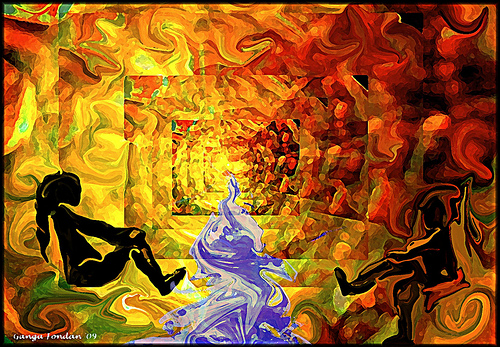Of Grinding Pepper, Banalities, and Seeking That Which We Yet Understand…
Working as both a wife of nearly 29 years, and mother of 3, has prepared me in various ways to accomplish the work of a fiction writer.
Working as a wife and mother requires a lot of what an Islamic Imam described as grinding pepper.
Grinding pepper, from the perspective of the imam encompasses those activities that we here in the west describe as comprising the bane of our existence–mindless tasks, that we view as disrespectful of our intelligence and that devalue our worth as a person.
The world banal implies a lack of uniqueness.
Something that is banal possesses no originality.
It is like the wheel that begs for no reinvention, rather more unique and original ways of bringing a deeper level of presence and attention to the task(s) at hand–tasks that when practiced with a presence of mind and heart sharpen our skills and artistry in all areas of life, yield an original creation, and transform us as individuals.
Of Grinding Pepper, Banalities, and Seeking That Which We Yet Understand… Read More »



